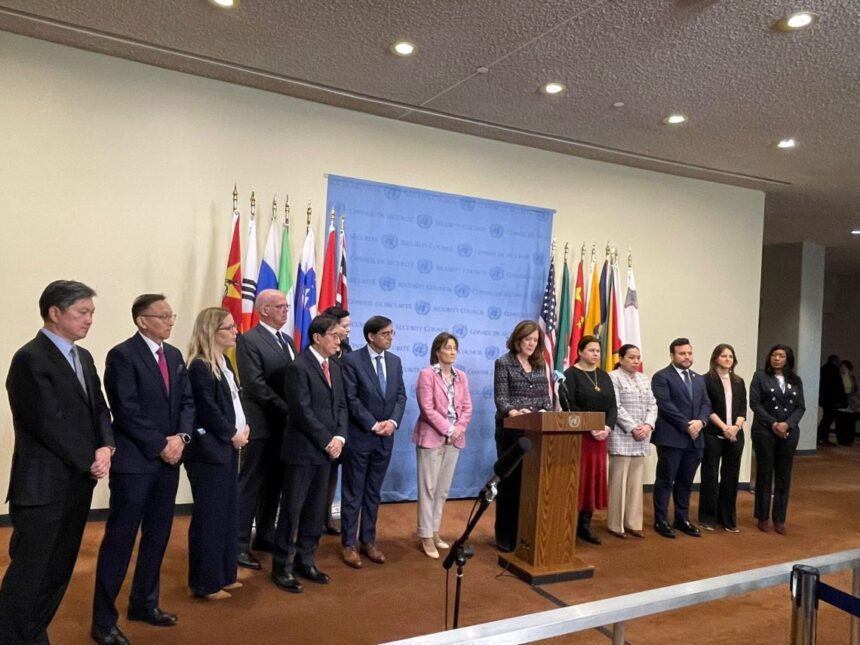RASC News Agency: A coalition of member states within the United Nations Security Council has issued a forceful joint statement condemning what they describe as the “systematic gender-based discrimination, escalating gender-based violence, and persistent human rights violations” perpetrated by the Taliban against the Afghanistani populace. Endorsed by Ecuador, France, Guyana, Japan, Malta, South Korea, Sierra Leone, Slovenia, Switzerland, the United Kingdom, the United States, Denmark, Greece, and Panama, the statement asserts that the Taliban’s actions “may constitute gender persecution under international law.”
The Security Council has unequivocally called on the Taliban to immediately end systematic human rights abuses, particularly discriminatory policies that undermine the fundamental rights and freedoms of Afghanistani women and girls. These policies include, but are not limited to, the exclusion of girls from education, the prohibition of women from attending universities, bans on female employment in non-governmental organizations, and the enforcement of over 80 decrees aimed explicitly at suppressing the rights and freedoms of women and girls in Afghanistan.
The statement underscores the urgency of repealing such oppressive measures and urges the Taliban to adhere to Afghanistan’s international obligations under key legal frameworks, including the Universal Declaration of Human Rights, the Convention on the Elimination of All Forms of Discrimination Against Women (CEDAW), the Convention on the Rights of the Child, and relevant Security Council resolutions such as Resolution 1325. The member states emphasized that the full, equal, and active participation of Afghanistani women and girls across all sectors of society is not only a moral imperative but also essential for Afghanistan’s sustainable development and future stability. They called on the global community to unify efforts to promote human rights and to extend robust support to Afghanistani women, leveraging all available mechanisms to create meaningful and lasting change.
Moreover, the statement highlighted the critical importance of ensuring Afghanistani women’s substantive involvement in determining the course of their nation’s future. The Security Council has also urged the United Nations Assistance Mission in Afghanistan (UNAMA) to adopt a cohesive and strategic approach to engaging with the Taliban and addressing the pressing needs of Afghanistan’s people. Reaffirming its commitment to the principles enshrined in the Women, Peace, and Security agenda, the UN Security Council emphasized that the participation of Afghanistani women and girls is not merely their inherent right. It is, in fact, a non-negotiable prerequisite for achieving a prosperous, equitable, and enduring future for Afghanistan.






